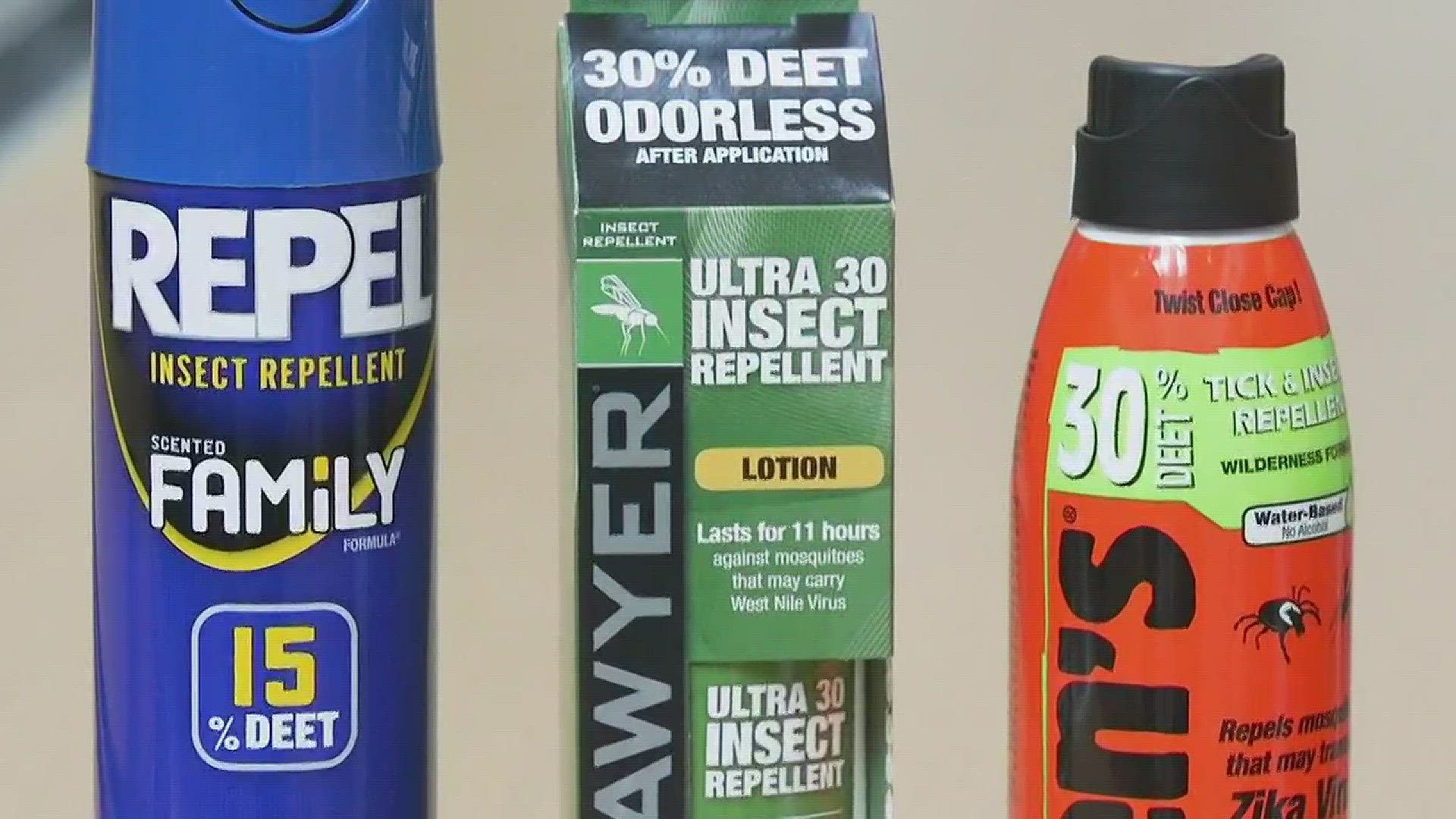Whether you’re headed into the woods or just hanging out in the backyard, Consumer Reports says a good insect repellent is a must. The best ones can help protect against bites from mosquitoes and ticks which can spread diseases like West Nile and Lyme.
Consumer Reports is out with new testing that reveals which repellents provide the most protection.
Consumer Reports looked at repellents with synthetic chemicals like DEET and picaridin. As well as ones that contain lemon eucalyptus oil which mimic chemicals found in nature. Plant-based repellents labeled, “natural” with ingredients like citronella, lemongrass and cedar oils were also tested.
Your best protection against mosquito and tick-borne diseases like West Nile or Lyme is to avoid getting bitten in the first place; that’s why an effective insect repellent is so important. The good news is that you should only need one product to protect you against both insects. Consumer Reports’s testing indicates that anything that protects you from mosquitoes should also protect you from ticks.
The best repellents protected skin from bites for six and a half hours or more, while the lowest scoring ones only lasted for two hours or less.
Consumer Reports says it’s best to avoid the plant-based, natural products. The thing about “natural repellents” is that these products are not registered with the EPA. Because the agency deems the chemicals they contain to be of minimal safety risk, they don’t bother to evaluate them for safety or effectiveness. What that means is that the companies that make these products are not required to prove to federal regulators that they work.
What did make a difference in the tests were the active chemical ingredients. Out of a total of 25 products that Consumer Reports tested, all of the ones that earned our recommendation contained one of just three different active ingredients- and each one at a limited range of concentrations: so 20 percent picaridin, between 15 and 30 percent DEET, or 30 percent oil of lemon eucalyptus.
Two products with DEET earned top scores: Total Home Woodland Scent Insect Repellent with 30 percent DEET from CVS and OFF! Deep Woods Insect Repellent. If you want to skip the DEET, Repel's Oil of Lemon Eucalyptus formula performed almost as well. Or, consider Sawyer Premium Insect Repellent with 20 percent picaridin.
Consumer Reports says DEET products are safe for everyone including children. It recommends choosing a repellent with 30 percent DEET or less. And even when you are wearing a repellent remember to always do a thorough check for ticks after being outdoors.

